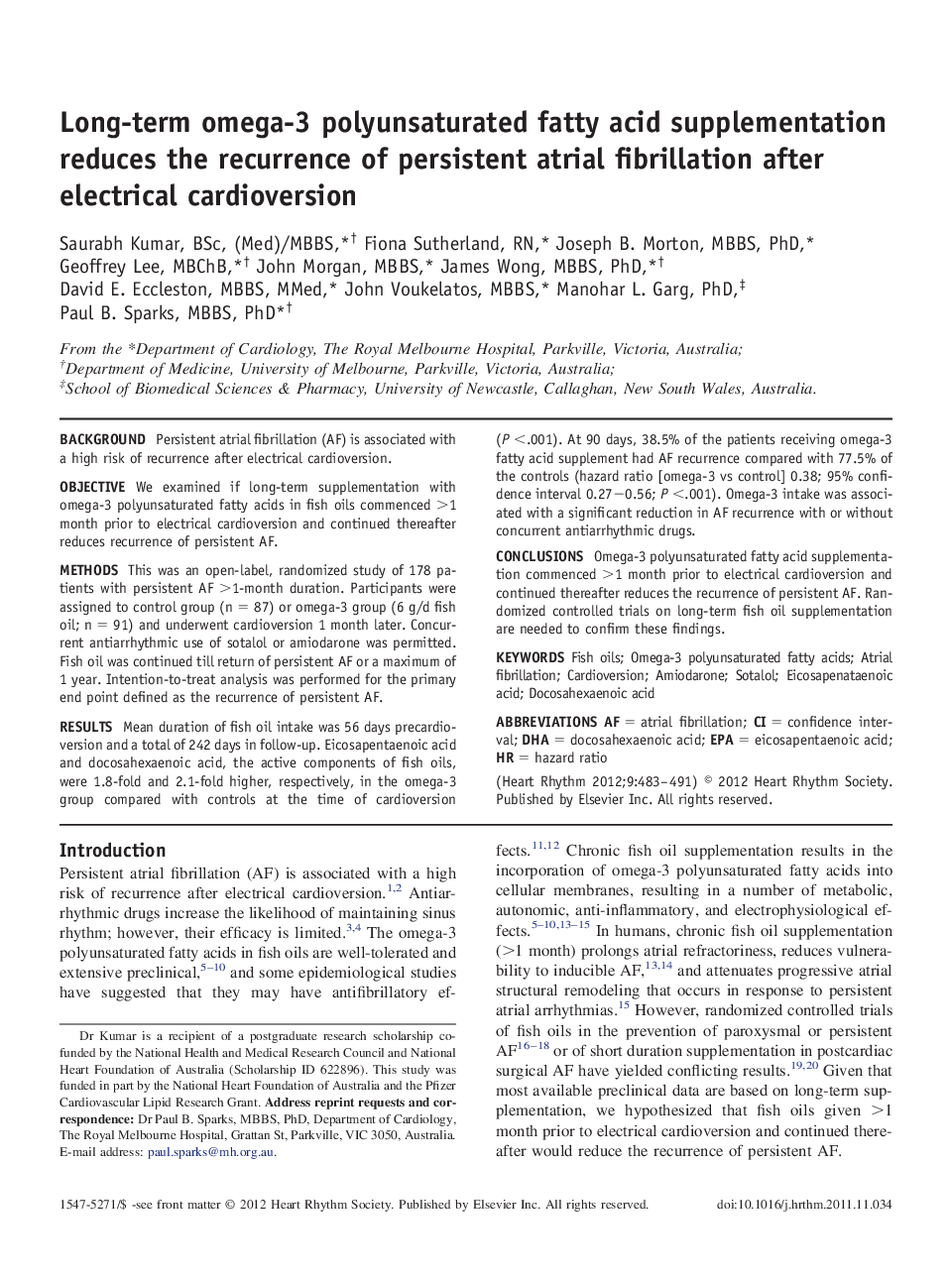| Article ID | Journal | Published Year | Pages | File Type |
|---|---|---|---|---|
| 2923118 | Heart Rhythm | 2012 | 9 Pages |
BackgroundPersistent atrial fibrillation (AF) is associated with a high risk of recurrence after electrical cardioversion.ObjectiveWe examined if long-term supplementation with omega-3 polyunsaturated fatty acids in fish oils commenced >1 month prior to electrical cardioversion and continued thereafter reduces recurrence of persistent AF.MethodsThis was an open-label, randomized study of 178 patients with persistent AF >1-month duration. Participants were assigned to control group (n = 87) or omega-3 group (6 g/d fish oil; n = 91) and underwent cardioversion 1 month later. Concurrent antiarrhythmic use of sotalol or amiodarone was permitted. Fish oil was continued till return of persistent AF or a maximum of 1 year. Intention-to-treat analysis was performed for the primary end point defined as the recurrence of persistent AF.ResultsMean duration of fish oil intake was 56 days precardioversion and a total of 242 days in follow-up. Eicosapentaenoic acid and docosahexaenoic acid, the active components of fish oils, were 1.8-fold and 2.1-fold higher, respectively, in the omega-3 group compared with controls at the time of cardioversion (P <.001). At 90 days, 38.5% of the patients receiving omega-3 fatty acid supplement had AF recurrence compared with 77.5% of the controls (hazard ratio [omega-3 vs control] 0.38; 95% confidence interval 0.27−0.56; P <.001). Omega-3 intake was associated with a significant reduction in AF recurrence with or without concurrent antiarrhythmic drugs.ConclusionsOmega-3 polyunsaturated fatty acid supplementation commenced >1 month prior to electrical cardioversion and continued thereafter reduces the recurrence of persistent AF. Randomized controlled trials on long-term fish oil supplementation are needed to confirm these findings.
